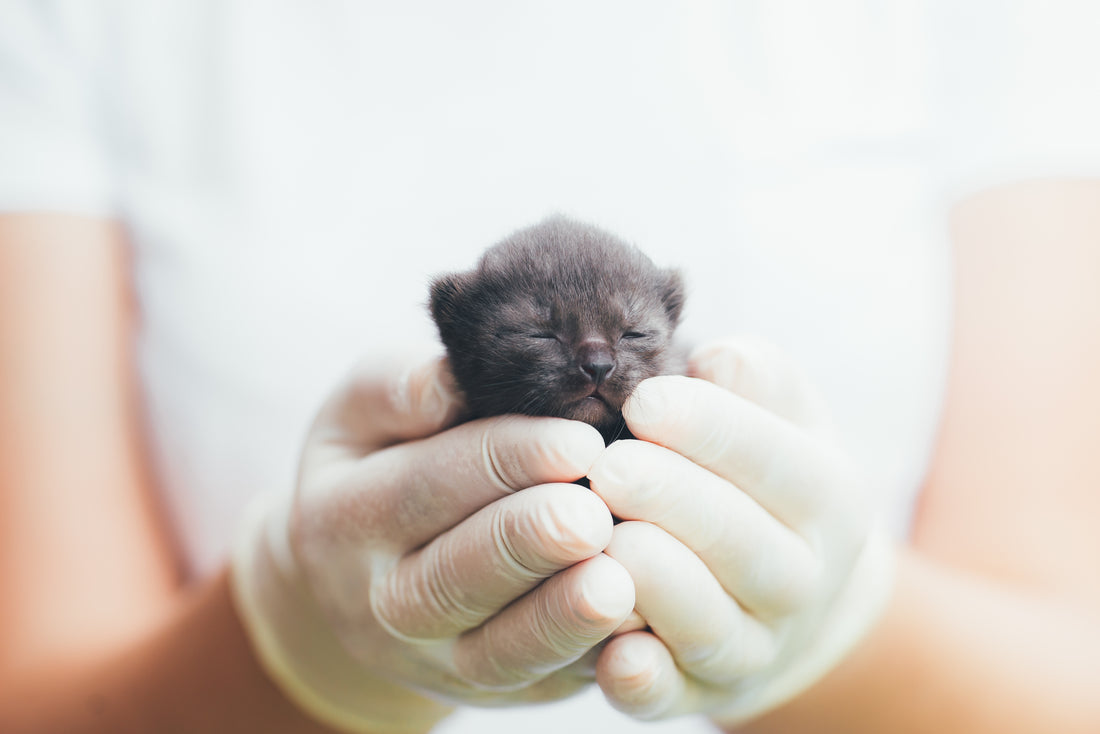The Essential Guide to Pet Vaccinations: Protecting Your Dog or Cat's Health

As a pet owner, one of the most important responsibilities you have is ensuring your furry friend's health and wellbeing. Vaccinations play a crucial role in this, providing essential protection against a range of potentially life-threatening diseases. Whether you have a dog or a cat, understanding the importance of pet vaccinations is key to keeping your beloved companion safe and healthy.
At Barekmor® Pet Foods, we're passionate about helping pet owners navigate the world of pet healthcare, which is why we've put together this comprehensive guide to pet vaccinations. From the core vaccines every pet should receive to the importance of staying up-to-date, we'll cover everything you need to know to keep your pet protected.
The Importance of Pet Vaccinations
Vaccines are designed to stimulate your pet's immune system, helping it build the necessary antibodies to fight off specific diseases. By administering these vaccines at the appropriate times, you can significantly reduce the risk of your pet contracting these illnesses, which can be costly, debilitating, and even fatal.
Some of the most common and dangerous diseases that vaccines protect against include:
- Distemper: A highly contagious and often fatal viral disease that affects the respiratory, gastrointestinal, and nervous systems.
- Parvovirus: A highly resistant virus that can cause severe vomiting, diarrhea, and dehydration, particularly in puppies and unvaccinated dogs.
- Rabies: A fatal viral disease that affects the nervous system and is transmissible to humans.
- Feline Panleukopenia: Also known as "feline distemper," this highly contagious and often fatal viral disease can cause severe gastrointestinal and neurological symptoms in cats.
- Feline Leukemia Virus (FeLV): A retrovirus that weakens the immune system and can lead to various types of cancer and other life-threatening conditions in cats.
By ensuring your pet is up-to-date on their vaccinations, you're not only protecting them but also safeguarding the health of other pets in your community. Vaccinated animals help create a "herd immunity" that makes it more difficult for these diseases to spread and affect unvaccinated or vulnerable pets.
Core Vaccines for Dogs and Cats
When it comes to pet vaccinations, there are certain "core" vaccines that are recommended for all dogs and cats, regardless of their lifestyle or risk factors. These core vaccines are considered essential for providing basic protection against the most common and serious infectious diseases.
For dogs, the core vaccines include:
- Distemper
- Parvovirus
- Canine Hepatitis
- Rabies
For cats, the core vaccines include:
- Feline Panleukopenia
- Feline Calicivirus
- Feline Herpesvirus
- Rabies
These core vaccines are typically administered in a series of shots, starting when your pet is a puppy or kitten and followed by booster shots at regular intervals throughout their life. It's important to work closely with your veterinarian to ensure your pet's vaccination schedule is up-to-date and that they receive the appropriate boosters on time.
Non-Core Vaccines and Lifestyle Considerations
In addition to the core vaccines, there are also "non-core" vaccines that may be recommended based on your pet's lifestyle, risk factors, and geographic location. These vaccines are designed to protect against diseases that are less common or pose a specific threat to your pet's environment.
For dogs, some common non-core vaccines include:
- Bordetella (kennel cough)
- Leptospirosis
- Canine Influenza
- Lyme Disease
For cats, non-core vaccines may include:
- Feline Leukemia Virus (FeLV)
- Feline Immunodeficiency Virus (FIV)
- Feline Coronavirus
Your veterinarian will take into account factors such as your pet's age, health status, and potential exposure to these diseases when determining which non-core vaccines are appropriate. For example, if your dog frequently visits dog parks or boarding facilities, they may be at a higher risk of contracting kennel cough and would benefit from the Bordetella vaccine.
Vaccination Schedules and Boosters
Maintaining your pet's vaccination schedule is crucial for ensuring their ongoing protection. Puppies and kittens typically receive their first round of vaccinations starting at around 6-8 weeks of age, with follow-up boosters administered every 3-4 weeks until they reach 16 weeks old.
After the initial puppy or kitten series, most core vaccines require regular booster shots to maintain immunity. Rabies vaccines, for instance, are usually given annually or every 3 years, depending on the type of vaccine used. Other core vaccines may need boosters every 1-3 years, as recommended by your veterinarian.
It's important to keep track of your pet's vaccination schedule and to never miss a booster shot. Skipping or delaying these follow-up vaccinations can leave your pet vulnerable to the very diseases the vaccines are designed to prevent.
Vaccine Safety and Side Effects
While vaccines are generally safe and effective, it's natural for pet owners to have concerns about potential side effects. The good news is that serious adverse reactions to pet vaccines are relatively rare, and the benefits of vaccination far outweigh the risks.
Some common, mild side effects that may occur after vaccination include:
- Temporary soreness or swelling at the injection site
- Mild fever or lethargy
- Decreased appetite
These side effects are usually mild and resolve within a few days. In rare cases, more severe reactions like allergic responses or autoimmune disorders may occur. However, your veterinarian will closely monitor your pet for any adverse reactions and take appropriate action if necessary.
It's important to note that the risks associated with not vaccinating your pet are much higher than the potential side effects of the vaccines themselves. Diseases like distemper, parvovirus, and rabies can be devastating, if not fatal, for unvaccinated animals.
Protecting Your Pet's Health
Keeping your dog or cat up-to-date on their vaccinations is one of the most important steps you can take to ensure their long-term health and wellbeing. By working closely with your veterinarian and following a comprehensive vaccination schedule, you can help safeguard your beloved companion against a range of dangerous and potentially life-threatening diseases.
At Barekmor® Pet Foods, we understand the importance of pet health and wellness. That's why we're committed to providing high-quality, hypoallergenic pet food formulas that support your pet's overall well-being. Browse our selection of premium, grain-free dog and cat food today and give your furry friend the nutrition they deserve.






